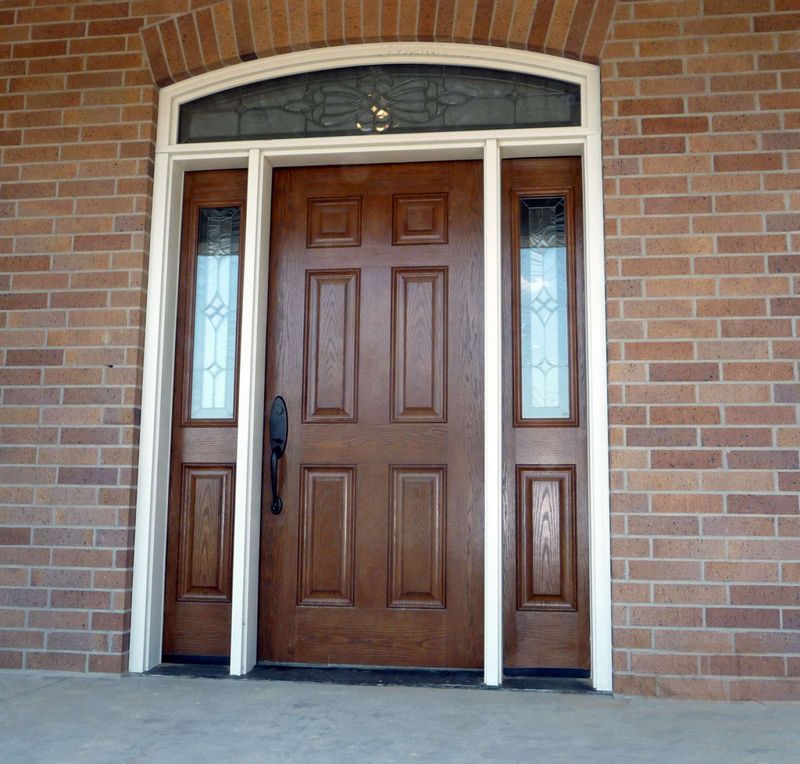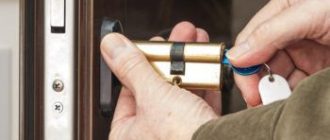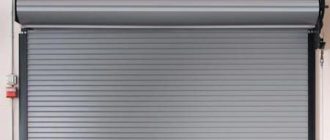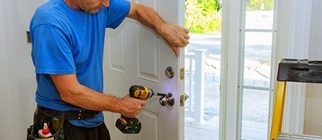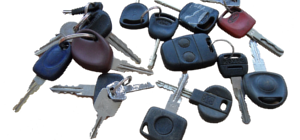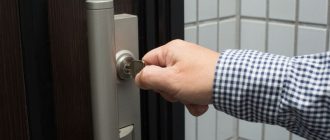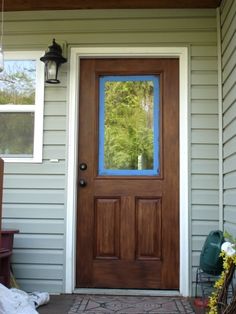
What are the pros and cons of a fiberglass door
When it comes to selecting a new door for your home, one material that you may consider is fiberglass. Fiberglass doors have become increasingly popular due to their many benefits. However, like any other choice, they also come with some drawbacks. In this article, we will discuss the pros and cons of choosing a fiberglass door for your home.
Pros of Fiberglass Doors
1. Durability: Fiberglass doors are known for their outstanding strength and durability. They are highly resistant to dents, scratches, and warping, making them an excellent long-term investment for your home.
2. Insulation: Fiberglass doors offer superior insulation properties, which can help to reduce energy costs by keeping your home warm in the winter and cool in the summer. They are more efficient than traditional doors when it comes to preventing heat transfer, ensuring a comfortable and energy-efficient home.
3. Low maintenance: Unlike wooden doors that require regular sanding, staining, and sealing, fiberglass doors are virtually maintenance-free. They are resistant to fading, cracking, and peeling, and can be easily cleaned with just soap and water.
Cons of Fiberglass Doors
1. Cost: One of the main drawbacks of fiberglass doors is their relatively high cost compared to other types of doors. While the initial investment may be higher, the long-term benefits and durability of fiberglass doors often outweigh the upfront expense.
2. Limited design options: Fiberglass doors may have limited design options compared to other materials such as wood. While they can be painted or stained to resemble wood, the range of styles and finishes available may be more limited.
3. Lack of natural feel: Although fiberglass doors can mimic the look and feel of real wood, they may not offer the same authenticity and warmth. Some homeowners prefer the natural beauty and charm of wooden doors, which cannot be replicated by fiberglass.
In conclusion, fiberglass doors have numerous advantages and a few downsides. They are durable, energy-efficient, and require minimal maintenance. However, they can be expensive and may not offer as much customization or the same natural feel as wooden doors. Ultimately, the choice of a door material depends on your preferences, budget, and the specific needs of your home.
Reasons why you should consider a fiberglass door for your home
Cost: One of the main reasons to consider a fiberglass door for your home is the cost. Fiberglass doors tend to be more affordable than other types of doors, such as wood or steel.
Maintenance: Fiberglass doors are known for their low maintenance requirements. Unlike wood doors, which may need regular repainting or staining, fiberglass doors are relatively easy to clean and maintain.
Insulation: Fiberglass doors offer excellent insulation properties. They have a high thermal resistance, which means they can help keep heat inside your home during the winter and keep it cool during the summer. This can lead to energy savings and lower utility bills.
Durability: Fiberglass doors are highly durable and resistant to dents, cracks, and warping. They can withstand extreme weather conditions without losing their structural integrity, making them a good choice for homes in areas prone to hurricanes, strong winds, or harsh climates.
Strength: Fiberglass doors are known for their strength and security. They are highly resistant to forced entry and provide a strong barrier between your home and the outside world.
Overall, fiberglass doors offer a combination of cost-effectiveness, low maintenance, insulation, durability, and strength, making them a practical and attractive option for homeowners. Consider these benefits when choosing a door for your home.
Durability
When it comes to durability, fiberglass doors have a number of pros that make them a popular choice for homeowners. One of the main advantages is that they are extremely strong and resistant to wear and tear. Unlike wood or steel doors, fiberglass doors do not warp, rot, or rust over time. This means that they can withstand harsh weather conditions without deteriorating.
In addition, fiberglass doors have excellent insulation properties, which can help to lower energy costs. They provide a better barrier against heat loss and air infiltration compared to traditional doors, making them more energy-efficient. This can result in significant savings on heating and cooling expenses over the long term.
Furthermore, fiberglass doors require very little maintenance. They do not need to be painted, stained, or sealed on a regular basis, unlike wood doors. They are also resistant to scratches and dents, so they can keep their like-new appearance for many years. All you need to do to keep your fiberglass door in good condition is to clean it with a mild soap and water solution from time to time.
Despite these advantages, there are a few cons to consider when choosing a fiberglass door. The main drawback is the cost. Fiberglass doors can be more expensive than other types of doors, such as wood or steel. However, the long-term durability and energy savings they offer may outweigh the initial cost. Additionally, fiberglass doors may not have the same aesthetic appeal as wood doors, as they cannot be easily customized with intricate designs or carved details.
In conclusion, durability is one of the key advantages of fiberglass doors. They are strong, resistant to wear and tear, and have excellent insulation properties. While they may be more expensive upfront and lack some of the aesthetic options of wood doors, their long-lasting nature and low maintenance requirements make them a practical choice for many homeowners.
Low maintenance
A major advantage of choosing a fiberglass door for your home is its low maintenance requirements. Unlike wood doors, fiberglass doors do not require regular painting or staining to maintain their appearance. Fiberglass doors are designed to resist fading, cracking, and warping, making them a durable and long-lasting choice for homeowners.
Fiberglass doors are also resistant to insect damage, rot, and moisture, which can be common issues with other door materials. This means that you won’t have to worry about the costs and inconveniences of repairs or replacements caused by these factors.
Furthermore, fiberglass doors are known for their insulation properties. They have a high R-value, which measures their ability to resist heat flow. This means that fiberglass doors can help keep your home cool in the summer and warm in the winter, reducing your energy costs.
Additionally, fiberglass doors are incredibly strong and durable. They are resistant to dents and dings, making them ideal for high-traffic areas or homes with pets and children. This strength also contributes to their security, providing a solid barrier against potential intruders.
In summary, fiberglass doors offer many advantages when it comes to low maintenance. Their durability, insulation properties, strength, and resistance to damage make them a cost-effective and convenient choice for homeowners.
Energy efficiency
Fiberglass doors are known for their energy efficiency. The insulation properties of fiberglass help to prevent drafts and keep out cold air during the winter months, which can help to reduce heating costs. Additionally, fiberglass doors are resistant to warping and shrinking, which can commonly occur with wood or steel doors. The durability and strength of fiberglass makes it an excellent choice for maintaining a consistent and comfortable indoor temperature, while also providing long-lasting performance.
However, there are some cons to consider when it comes to the energy efficiency of fiberglass doors. While fiberglass itself is a highly efficient insulator, the overall energy efficiency of a fiberglass door can vary depending on the quality of the door and the installation process. Poorly installed or low-quality fiberglass doors may not provide the same level of insulation as higher-quality options.
In terms of cost, fiberglass doors can be more expensive than other types of doors, such as wood or steel. However, the long-term energy savings and durability of fiberglass doors can make them a worthwhile investment.
Security
When it comes to the security of your home, fiberglass doors offer several advantages. One of the main pros of choosing a fiberglass door is its strength. Fiberglass doors are made from a combination of glass fibers and resin, which creates a strong and durable material. This makes it difficult for intruders to break into your home, providing an extra level of security.
In addition to their strength, fiberglass doors also offer good insulation. This means that they can help to keep your home protected from extreme temperatures, reducing the need for excessive heating or cooling. This can also contribute to the security of your home, as it prevents drafts and maintains a comfortable environment.
On the downside, fiberglass doors may require some maintenance. Over time, the surface of the door may fade or discolor, especially if exposed to direct sunlight. Additionally, if the door sustains any damage, it may be more difficult to repair compared to other materials like wood or steel.
Cost can also be a con to consider. Fiberglass doors tend to be more expensive compared to some other materials, such as steel or wood. However, the long-term durability of fiberglass doors can help offset this initial cost.
In summary, when it comes to security, fiberglass doors offer strength and insulation. However, they may require some maintenance and can be more expensive upfront compared to other materials. Overall, the pros of increased security and durability may outweigh the cons for many homeowners.
Design versatility
Fiberglass doors offer homeowners a wide range of design options, making them a versatile choice for any home. Whether you have a traditional or modern style, there is a fiberglass door design that will complement your home’s aesthetic.
Durability: Fiberglass doors are highly durable and resistant to warping, cracking, and rotting. This means that they will maintain their shape and appearance for many years, even in harsh weather conditions.
Strength: Fiberglass doors are known for their strength and security. They are more resistant to forced entry than other materials, such as wood or steel. This makes them a popular choice for homeowners who prioritize home security.
Maintenance: Fiberglass doors are low-maintenance, requiring minimal upkeep. They do not need to be painted or stained, and they are easy to clean with just soap and water. This can save homeowners both time and money in the long run compared to other door materials.
Cost: While fiberglass doors may be more expensive upfront compared to other door materials, they can provide cost savings in the long term. Their durability and low-maintenance qualities mean that homeowners are less likely to incur additional costs for repairs or replacements.
Overall, the design versatility of fiberglass doors, combined with their durability, strength, low maintenance, and potential cost savings, make them a popular choice for homeowners looking for a stylish and practical option for their home’s entryway.
Weather resistance
When it comes to weather resistance, fiberglass doors have both pros and cons.
One of the main advantages of fiberglass doors is their strength and durability. Unlike wood doors, fiberglass doors do not warp, crack, or rot when exposed to extreme weather conditions, such as heavy rain, snow, or high humidity. This makes them an excellent choice for homes in regions with harsh climates.
Another benefit of fiberglass doors is their insulation properties. They can provide better insulation than wood doors, helping to keep the cold air out in winter and the hot air out in summer. This can lead to improved energy efficiency and lower heating and cooling costs.
Additionally, fiberglass doors require less maintenance compared to wood doors. They are resistant to fading, peeling, and chipping, and only require occasional cleaning with mild soap and water to maintain their appearance. This makes them a low-maintenance option for homeowners.
However, fiberglass doors also have their drawbacks when it comes to weather resistance. They can be more expensive compared to wood doors, which may put them out of budget for some homeowners. Additionally, extreme temperature fluctuations can cause fiberglass doors to expand or contract, which may affect their fit and performance over time.
Overall, fiberglass doors offer excellent weather resistance due to their strength, durability, insulation properties, and low maintenance requirements. However, homeowners should consider the potential cons and weigh them against the pros before making a decision.
Cost-effectiveness
One of the major advantages of choosing a fiberglass door for your home is the cost-effectiveness it offers. While the upfront cost of a fiberglass door may be higher compared to other materials such as wood or steel, its long-term durability and low maintenance requirements make it a cost-effective choice in the long run.
Unlike wooden doors, fiberglass doors are not prone to warping, rotting, or swelling, which can lead to expensive repairs or replacements. Fiberglass is a strong and durable material that can withstand extreme weather conditions without losing its shape or structural integrity. This means that you won’t have to spend money on repairs or replacements due to damage caused by moisture or temperature changes.
In terms of maintenance, fiberglass doors are also highly cost-effective. Unlike wooden doors that require regular sanding, staining, and painting to maintain their appearance and protect them from the elements, fiberglass doors only need occasional cleaning with soap and water to keep them looking great. This saves you both time and money on maintenance costs.
Another cost-effective feature of fiberglass doors is their insulation properties. Fiberglass is a poor conductor of heat and cold, which means it helps to insulate your home and reduce energy costs. By keeping the heat out in the summer and the cold out in the winter, fiberglass doors can help you save money on your heating and cooling bills throughout the year.
However, it’s important to note that not all fiberglass doors are created equal. The cost-effectiveness of a fiberglass door will depend on its quality and the manufacturer. It’s worth investing in a high-quality fiberglass door from a reputable manufacturer to ensure that you get the most value for your money.
In summary, the cost-effectiveness of fiberglass doors is one of their major advantages. Their durability, low maintenance requirements, and insulation properties make them a cost-effective choice for homeowners in the long run. However, it’s important to choose a high-quality fiberglass door to ensure its long-term cost-effectiveness.
Easy installation
One of the advantages of choosing a fiberglass door for your home is the easy installation process. Unlike other types of doors, such as solid wood doors, fiberglass doors are lightweight and therefore easier to handle during installation. This can save you time and effort during the installation process.
Fiberglass doors also come prehung, which means they are already attached to a frame, making installation even easier. This prehung feature eliminates the need for additional framing, which can be time-consuming and costly.
In addition, fiberglass doors are designed to fit standard door openings, making it easier to find a door that matches the dimensions of your existing doorway. This eliminates the need for custom door orders, which can be more expensive and take longer to arrive.
Overall, the easy installation of fiberglass doors is a major benefit for homeowners looking to replace their doors. It saves time, effort, and money, making it a convenient option for many.
Sound insulation
One of the main advantages of choosing a fiberglass door for your home is its sound insulation properties. Fiberglass doors are known for their ability to block out external noise and create a quieter, more peaceful environment inside your home.
The fiberglass material used in these doors is denser and sturdier than other materials, which helps to reduce noise transmission. Additionally, fiberglass doors often come with weatherstripping and other sealing features that help further improve their sound insulation capabilities.
This is especially beneficial if you live in a noisy neighborhood or near a busy street. By installing a fiberglass door, you can significantly reduce the amount of outside noise that enters your home, making it a more comfortable and tranquil space.
It’s important to note that while fiberglass doors offer excellent sound insulation, they may not provide the same level of insulation as solid wood doors. However, when compared to other types of doors such as steel or aluminum, fiberglass doors are generally considered to be more effective at soundproofing.
| – Blocks out external noise | – May not offer the same level of insulation as solid wood doors |
| – Creates a quieter, more peaceful environment | |
| – Denser and sturdier material | |
| – Often comes with weatherstripping and sealing features |
In terms of sound insulation, fiberglass doors offer a great value for cost. While they may be slightly more expensive than other materials such as steel or aluminum, their durability and long lifespan make them a worthwhile investment. Additionally, fiberglass doors require minimal maintenance, further adding to their cost-effectiveness.
If you prioritize sound insulation and want to create a quieter living space, a fiberglass door may be the ideal choice for your home.
Resistant to pests and rot
Fiberglass doors are known for their durability, which is why they are often chosen for their resistance to pests and rot.
Unlike wood, fiberglass is not susceptible to pests such as termites or carpenter ants, which can cause damage to doors over time. This makes fiberglass doors a great option for homeowners who want to avoid the potential cost and hassle of dealing with pest infestations.
In addition, fiberglass doors are also resistant to rot. Unlike wood, which can deteriorate over time when exposed to moisture, fiberglass doors are built to resist water damage. This makes them a popular choice for homeowners in humid climates or areas prone to heavy rainfall.
Furthermore, the insulation properties of fiberglass doors help to prevent moisture from seeping into the door and causing rot. This not only helps to protect the structural integrity of the door but also contributes to improved energy efficiency in the home.
While fiberglass doors offer many advantages when it comes to resistance to pests and rot, it is important to consider the pros and cons of fiberglass doors as a whole. Factors such as cost and maintenance requirements should be taken into account when making a decision about the right door material for your home.
Fire resistance
Fiberglass doors are known for their excellent fire resistance, making them a safe choice for homeowners. Unlike wooden doors, fiberglass doors do not easily catch fire or spread flames, which can help to reduce the risk of damage to your home in the event of a fire. This is due to the materials used in the construction of fiberglass doors, which are designed to withstand high temperatures.
Fire-resistant fiberglass doors are often made with multiple layers of fire-resistant materials, such as fire-rated core materials and fire-resistant coatings. These layers add an extra level of protection and help to keep the fire contained, limiting its ability to spread to other areas of the house.
In addition to their fire resistance, fiberglass doors also offer other benefits such as cost-effectiveness, strength, durability, and good insulation. However, it is important to note that fiberglass doors may have some cons as well. For example, they can be more expensive than other types of doors, and may require additional maintenance to keep them in good condition.
| Excellent fire resistance | Higher cost compared to other types of doors |
| Good insulation | Requires occasional maintenance |
| High strength and durability | – |
Environmentally friendly
Fiberglass doors are considered to be an environmentally friendly option for homeowners. Unlike wooden doors, they do not require regular maintenance such as painting or staining, which can involve the use of environmentally harmful chemicals.
In terms of insulation, fiberglass doors are known for their energy efficiency. They have a high insulation value, which helps to keep the heat inside during the winter months and prevent cool air from escaping during the summer. This can result in lower energy bills and reduce the carbon footprint of the home.
Furthermore, fiberglass is a highly durable material. It is resistant to warping, rotting, and cracking, making it a long-lasting option for homeowners. This durability means that fiberglass doors have a longer lifespan than other types of doors, reducing the need for replacements and ultimately decreasing waste.
In terms of cost, fiberglass doors may have a higher upfront cost compared to other options such as wood or steel. However, the long-term benefits in terms of energy efficiency and durability can outweigh the initial investment.
Additionally, fiberglass doors offer a high level of strength and security. They are difficult to break through, making them an excellent choice for homeowners concerned about home security.
While fiberglass doors offer numerous benefits, it is essential to consider some potential cons. Over time, fiberglass doors may fade or become discolored, especially if exposed to direct sunlight. Additionally, they may be more challenging to repair compared to other types of doors.
In conclusion, fiberglass doors are an environmentally friendly option that offers several advantages, including low maintenance, excellent insulation, durability, and strength. However, potential drawbacks such as higher upfront cost and potential discoloration should be taken into account when considering this type of door for a home.
Increases curb appeal
One of the pros of choosing a fiberglass door for your home is that it can significantly increase the curb appeal of your property. Fiberglass doors come in a wide range of styles, designs, and colors, allowing you to choose the perfect door that complements your home’s exterior. Whether you prefer a traditional or modern look, fiberglass doors can enhance the overall aesthetic of your home and make a great first impression.
In addition to their appealing appearance, fiberglass doors offer many advantages over other types of doors. They are known for their strength and durability, making them a long-lasting option for your home. Fiberglass is a robust material that is resistant to dents, scratches, and warping, ensuring that your door will maintain its great look for years to come.
Another advantage of fiberglass doors is their low maintenance requirements. Unlike wooden doors, fiberglass doors do not require frequent painting, staining, or sealing. They can easily be cleaned with soap and water, allowing you to spend less time on maintenance tasks and more time enjoying your home.
Fiberglass doors also provide excellent insulation for your home. They have high thermal efficiency, which means they can help to keep your home warm in the winter and cool in the summer. This can lead to energy savings and lower utility bills, making fiberglass doors a cost-effective choice in the long run.
While there are many pros of choosing a fiberglass door, there are a few cons to consider as well. One potential disadvantage is the initial cost. Fiberglass doors tend to be more expensive than other types of doors, such as steel or wood. However, the long-term durability and energy efficiency of fiberglass doors make them a worthwhile investment.
In conclusion, choosing a fiberglass door for your home can increase its curb appeal and provide many benefits. With their attractive designs, strength, durability, low maintenance requirements, and excellent insulation, fiberglass doors are a great choice for homeowners looking for a long-lasting, energy-efficient door option.
Long lifespan
One of the pros of choosing a fiberglass door for your home is its long lifespan. Fiberglass doors are known for their durability and can often last for many years without needing to be replaced. Unlike other materials like wood, fiberglass is resistant to rot, rust, and warping, meaning it can withstand various weather conditions.
Additionally, fiberglass doors require minimal maintenance to keep them looking and functioning their best. Unlike wood doors that may need to be sanded, stained, or painted regularly, a fiberglass door simply needs to be wiped down and cleaned occasionally. This can save homeowners both time and money on maintenance tasks.
Another advantage of fiberglass doors is their insulation properties. Fiberglass is an excellent insulator, helping to keep your home comfortable and energy-efficient. This can result in lower heating and cooling costs, making fiberglass doors a cost-effective choice in the long run.
Furthermore, fiberglass doors are known for their strength and security. They are more resistant to impacts, break-ins, and forced entry compared to wood or steel doors. This can provide homeowners with peace of mind knowing that their entrance is well-protected.
While there are many pros to choosing a fiberglass door, there are also a few cons to consider. The cost of a fiberglass door is often higher than that of a wood or steel door. However, when considering the long lifespan and low maintenance requirements, the initial investment can be justified.
In conclusion, the long lifespan of fiberglass doors, combined with their low maintenance, insulation properties, and strength, make them a popular choice for homeowners. Although the cost may be higher initially, the benefits and durability of fiberglass doors make them a worthwhile investment for many.
Q&A:
What are the advantages of choosing a fiberglass door for my home?
There are several advantages of choosing a fiberglass door for your home. Firstly, fiberglass doors are highly durable and resistant to wear and tear. They are also resistant to weather conditions, including extreme heat and cold, which makes them a great option for homes in different climates. Additionally, fiberglass doors require very little maintenance and do not need to be repainted regularly. They are also energy-efficient, providing good insulation and helping to reduce energy costs. Finally, fiberglass doors come in a wide variety of styles and designs, allowing you to choose one that complements your home’s aesthetic.
Are there any disadvantages to choosing a fiberglass door?
While there are many advantages to choosing a fiberglass door, there are also a few disadvantages to consider. One of the main disadvantages is the higher cost compared to other door materials, such as wood or steel. Fiberglass doors can be more expensive upfront. Additionally, while they are generally resistant to wear and tear, they can be prone to cracking or denting if they are hit with a significant force. Finally, although fiberglass doors come in a variety of styles, the options may not be as customizable as other materials like wood.
How long do fiberglass doors typically last?
Fiberglass doors are known for their durability and longevity. When properly maintained, they can last for decades. On average, a fiberglass door can last anywhere from 20 to 30 years. The lifespan of a fiberglass door can also depend on factors such as the quality of the door, the installation, and how well it is taken care of. Regular cleaning and checking for any signs of wear or damage can help prolong the life of a fiberglass door.
Are fiberglass doors easy to install?
Yes, fiberglass doors are generally easy to install. They are lightweight compared to materials like wood or steel, making them easier to handle during the installation process. Fiberglass doors can also be pre-hung, which means they come with the door frame already attached, further simplifying the installation process. However, if you are unsure about installing a fiberglass door yourself, it is always best to hire a professional to ensure proper installation and avoid any potential issues.

